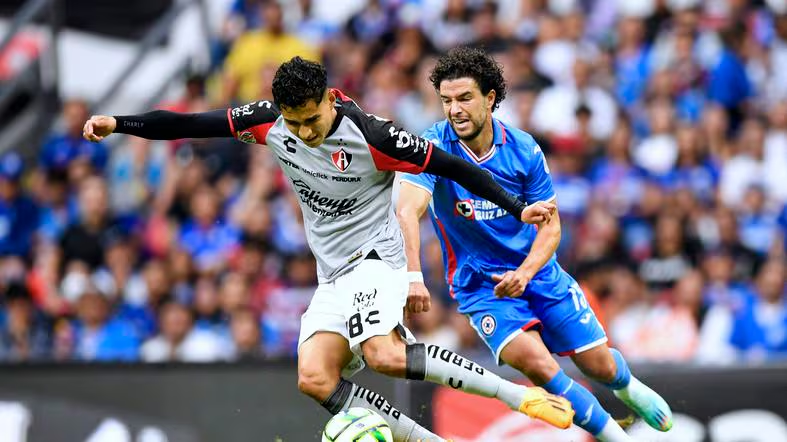Apira famously refused to shake Museveni’s hand, claiming it was blood stained, when the Uganda president made a brief appearance in Juba and shook hands with some members of the Kony team.
[Global News: Uganda Crises]
A deputy to Uganda’s foreign affairs minister has said opponents of the government’s military campaign against the Lord’s Resistance Army deserve to be executed.
“Those who are condemning the attack are mad people and they deserve to be hanged,” said Uganda’s minister of state for foreign affairs Henry Okello Oryem, in a telephone interview.
He was referring to the attack by aerial bombardment of the LRA’s encampments inside the Garamba forest in the Democratic Republic of Congo, by Uganda’s army beginning last Sunday.
Many Ugandans fear that the attacks will scuttle for good the peace talks which have stalled since the LRA Chief Joseph Kony refused to sign a peace deal saying he first wants outstanding International Criminal Court (ICC) warrants to be vacated.
The 22-years war has been confined mostly to northern Uganda’s Acholi region. Some members of parliament from Acholi have condemned the attack fearing that it may result in renewed attacks by the LRA inside Uganda; an uneasy truce has held for two years since the LRA and Uganda government troops started observing a Cessation of Hostilities deal. Some critics contend the attacks were a deliberate ploy by Uganda government to sabotage the talks; it is people like those that invite a sharp rebuke from Minister Okello Oryem.
“Those who are making such comments and blame the government for the attack are deserters and more dangerous than Kony,” Oryem said, referring to the LRA chief. “The UPDF had to attack LRA camp in Garamba to force Joseph Kony to sign the Peace agreement,” he said, referring to the Uganda People’s Defense Forces, the acronym for the national army.
“There was no any other alternative rather than launching an attack because Kony had no fixed address,” Oryem continued, when asked whether there was a provision that dictated which party was to sign the agreement first. Some critics contend it was unfair for the government to use the absence of Kony’s signature as sufficient reason to resume warfare; they point out that the Uganda government also has not signed the deal.
“Kony deceived Uganda’s delegation; deceived the international observers from the UN; and, the only way was to put more pressure to him so that he can sign,” Minister Oryem Okello continued. “Yes, we had not signed our part, because we were still waiting for Kony to sign his part—-It was agreed from the beginning that Joseph Kony had to sign first.”
Okello Oryem added: “From the beginning the understanding was that Kony had to sign first because he had no fixed address; yet the Ugandan government has the address.”
Defending the action which has been condemned by people supporting the talks, Minister Oryem gave four reasons why the Uganda government carried out the attack. “The United Nations supported the action of the government of Uganda together with SPLA and DRC’s FARDC; AU also supported our position,” said the Uganda official, referring respectively to the Sudanese People’s Liberation Army; Congo’s national army; and the African Union.
It could not be independently verified whether the armies mentioned and the AU actually supported the attack. A Ugandan Member of Parliament, Ronald R. Okumu has said the bombs hit only an empty camp long after the LRA had withdrawn. Meanwhile, in a news conference Uganda President Yoweri Museveni has said the LRA might have intercepted radio messages exchanged by pilots in attack helicopters.
Separately, two former members of the LRA’s negotiating team in Juba, who were ejected, denounced the minister and said the negotiations were long compromised because government agents had infiltrated.
“If he says the attack was okay, then he is a traitor who is colluding with Museveni to promote genocide in northern Uganda,” said Yolam Okech, who was one of the original 21 members of the LRA team, referring to Oryem Okello, who like Okech, also comes from Uganda’s Acholi region. “Okello is among Museveni’s propagandists who have turned the suffering of northerners and this war into a commercial venture.”
“You can’t say that Kony has refused to sign the agreement when some of the key issues haven’t been addressed and important issues remained hanging in air,” Okech said, adding: “Kony is an intelligent guy; he wanted to sign the agreement after the issue of the ICC has been catered for but nothing has been done.”
He said the talks geared astray when Museveni’s brother, General Salim Saleh started ferrying some members of Kony’s original negotiating team away from Juba, the original location for the Talks, to Mombasa, in Kenya.
“From the day one, we were skeptical about Museveni’s plans, because everything was being rushed,” he said, “maybe because they wanted to host the CHOGM and the unresolved northern Uganda conflict was going to attract a lot of attention,” referring to Uganda’s hosting of the Commonwealth Heads of Government Meeting. “This was possibly the reason why they agreed to have talks a year before CHOGM. After; you can see what they are doing.”
“Don’t forget that this is not the first time Museveni has been in talks; you know the Nairobi talks with Lutwa, the Bigombe initiated talks, all have ended in funny ways,” Okech added, referring to an accord between Museveni and former president Tito Okello Lutwa in 1985; Museveni subsequently seized power after signing the deal with Okello.
Betty Bigombe, negotiating on behalf of Uganda government, similarly did not get far.
“This is an issue that has taken over 20 years; why rush and want to finish it in less than two years whilst key issue are not solved?” wondered Okech.
Josephine Apira who was also on the original negotiating team added: “We need peace for our people in northern Uganda, but Uganda government has other motives. Apart from few who came from the Diaspora, majority of the people on our [negotiating] team were Museveni planted agents.”
Rather than focusing on substance, delegates gathered at Juba, location of the Talks, were constantly demanding for stipends from the Uganda government. “People were getting instructions from Kampala-government even when they were part of Kony’s team,” Apira claimed. “The whole thing turned to be a business venture and people were not talking but attending to sign for allowance,” she said.
Apira famously refused to shake Museveni’s hand, claiming it was blood stained, when the Uganda president made a brief appearance in Juba and shook hands with some members of the Kony team.
The compromises meant the composition of the Kony team kept changing.
“That is why David Matsanga and others came in,” she added, referring to the LRA’s current delegation leader to the peace negotiations. “The role of Matsanga needs some investigations. Who funded and facilitate him for the talks? Sometimes he calls himself a CIA agent; other times an ICC expert; a conflict resolution expert and so forth.”
She claimd she and others who turned down bribes were ejected.
Miwambo reports for The Black Star News from Europe

















